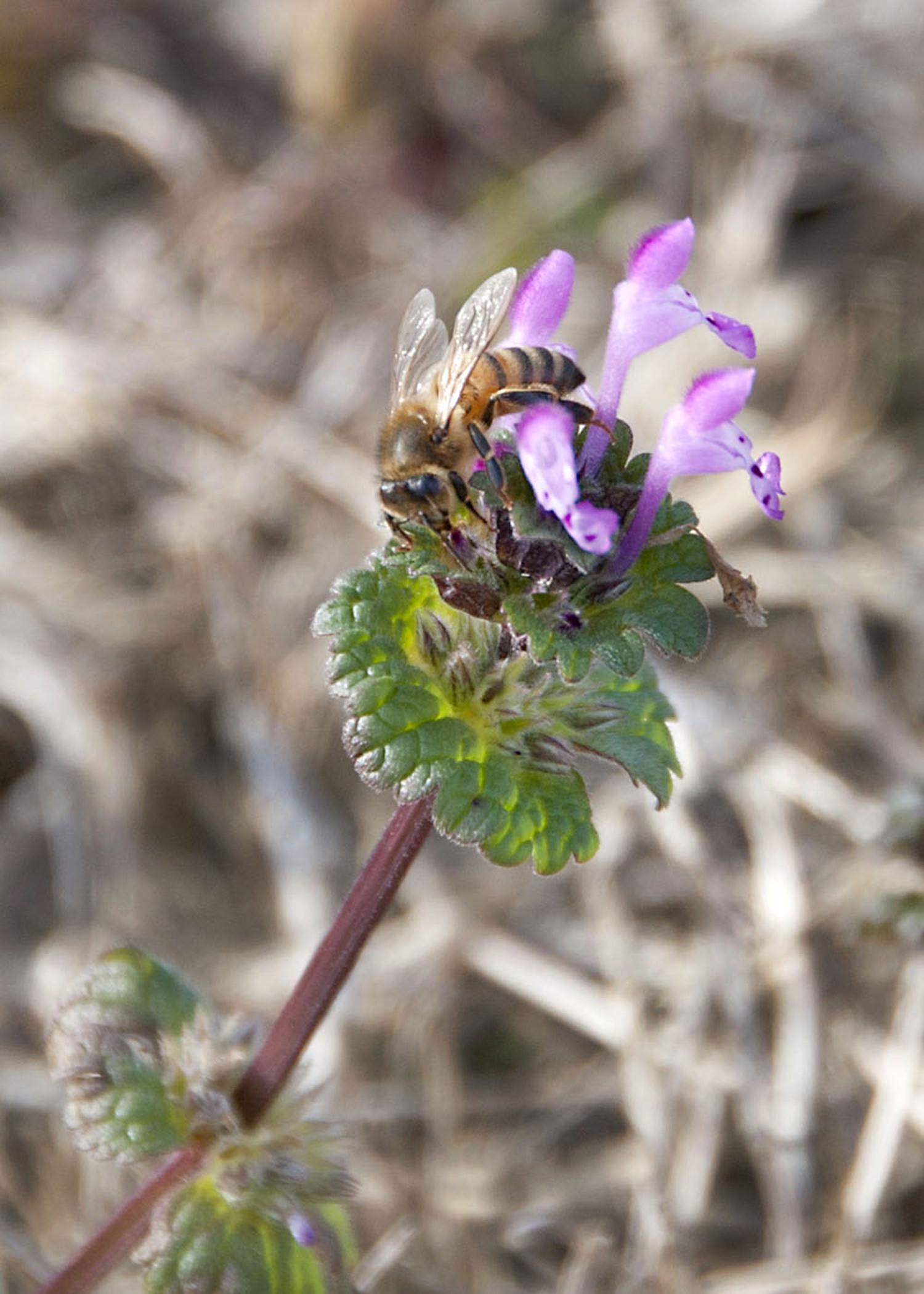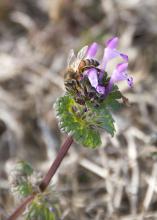Information Possibly Outdated
The information presented on this page was originally released on March 3, 2015. It may not be outdated, but please search our site for more current information. If you plan to quote or reference this information in a publication, please check with the Extension specialist or author before proceeding.
Bees and beekeepers keep busy during the spring
STARKVILLE, Miss. -- Spring is a busy time for bees and beekeepers, as longer days and warmer weather bring the first flowers into bloom.
Jeff Harris, Mississippi State University Extension bee specialist and Mississippi Agricultural and Forestry Experiment Station researcher, said bees are growing rapidly during the months of February and March.
“Bees are growing at a quick pace leading up to spring-time, especially in the southern third of the state,” he said. “However, even in Starkville, if the weather is good, important spring plants bloom and provide the nutrition that bee colonies need to raise new bees.”
During the winter, a colony will not produce new bees, and all colonies dwindle in size during this time. They begin to recover when maples, dandelions and henbit begin to bloom in February.
“If March is warm, tons of flowers bloom, and colony growth can be explosive,” he said.
“This is a critical time for bee colonies to recover from the winter and grow to be strong enough to secure a honey crop.”
Harris said it is essential for beekeepers to make sure that their bees do not starve during February and early March.
“Beekeepers can feed sugar solutions or candy to save bees from starving if necessary,” he said. “They can also feed them protein supplements to help stimulate the raising of new bee larvae. This helps jump-start bee growth in the spring.”
The figures for 2014 are not yet available, but Harris said they should be comparable to 2013.
“In 2013, about 18,000 colonies of bees produced, on average, about 118 pounds of honey per colony for a total yield of 2.124 million pounds at a total value of $3.759 million,” he said. “Mississippi beekeepers averaged about $1.77 per pound of honey. Mississippi producers produce quite a bit more honey per colony than average because soybean honey production is a large contributor of the state’s total honey production.”
Harry Fulton, former state entomologist with the Mississippi Department of Agriculture and Commerce, said the winter of 2014-2015 has been fine for bees, but it could have been better.
“This winter would have been better if more days with the temperature above 55 degrees had occurred, allowing the bees to fly more,” he said. “The weather through mid-March is critical. The population can drop drastically in February and March, when the older bees in the cluster begin dying. Winter is not over for beekeepers until the bees have young bees emerging to build up the population at this critical time -- a time when they can start flying and making a living gathering food so beekeepers do not have to feed them.”
Fulton said the demand for bees has increased, which increases the need for bee breeders.
“Anyone willing to work in beekeeping can make a good living once he or she is established and set up with 500 or more colonies,” he said. “My guess, based on my experience, is that a six-figure gross income is not out of the question for a commercial beekeeper.”
Fulton said honey bees affect the economy in several different ways.
“Honey, beeswax, royal jelly and pollen are products of bee colonies,” Fulton said. “However, the greatest value to our economy is from pollination of many crops for food and fiber. More than 100 crops are dependent on honey bees for varying degrees of pollination.”
For the past five years, Mississippi has been the highest among the states in the pounds of honey produced per colony.
“In Mississippi a big portion of our income in beekeeping is from the sale of honey-bees as package bees, nucleus starter hives and queen honey bees to other beekeepers,” he said.
For more information on beekeeping, visit the Mississippi Beekeepers Association website at http://www.mshoneybee.org.




